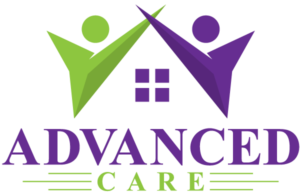The signs of aging creep up slowly, and as time goes on, able-bodied seniors are less able to live independently without a little help from a caregiver. Whether you or a loved one needs help with cooking, cleaning, hygiene, or supervision, caregivers fill the gaps in the things seniors can no longer manage on their own.
It makes perfect sense to explore all your options for senior caregiving to ensure the best possible care.
Private caregiver vs. agency – what’s the better option? We’ll go over the pros and cons of each type of caregiver service to inform your decision.
Pros and Cons of Private Caregivers vs. Agency Caregivers
As with anything, it’s a good idea to get the facts before you make your final choice about how to approach hiring a caregiver. The first question to ask yourself is whether you want to accept full responsibility for hiring or leave it to the experts who’ve been doing it for years.
Be aware that when you hire a private caregiver, you’re filling the role of an employer. As such, you’re responsible for hiring, paying, and supervising them. You’ll also be responsible for insuring them and handling taxes.
Here’s a closer look at the pros and cons of hiring a private caregiver vs. working with an agency.
Pros of Private Caregivers
- You choose your preferred caregiver
- You are in control of negotiating caregiver pay
- You negotiate the payment terms
- A consistent caregiver develops strong bonds with seniors
Cons of Private Caregivers
- You’re responsible for advertising and answering calls
- You do the interviewing
- Non-medical caregivers can be difficult to find
- You’re responsible for employer-related tasks, compliance, and payroll
- You accept responsibility for liability (insurance for work-related injuries and accidents)
- You’re responsible for substitute care if the caregiver doesn’t show up
Pros of Working with a Homecare Agency
- Reliability — homecare agencies ensure that those that need care get the care, when it’s needed; no need to worry about an employee not showing up for work
- Superior health outcomes — an in-home care agency will have a registered nurse produce a unique plan of care for each individual, and the nurse will periodically assess the health and quality of life of those receiving care
- In-home care agencies have access to numerous caregivers so you’re more likely to find the right fit
- Home care agencies have the resources to conduct thorough background checks & monitor performance
- In-home care agency administrators manage all the required paperwork and payroll for you
- Agencies incur the cost of liability insurance to protect the caregiver, those they care for, and you
- 24/7 care is available
- Peace of mind: you can be confident that your loved one will receive high-quality care and that a nurse will monitor their condition
Cons of Working with an Agency
- The extra reliability and safety of working with an agency means you’re likely to pay a little more for care services
- Due to flexibility in scheduling, different caregivers may provide care if the regular caregiver isn’t available
Private Caregivers vs. Agency Caregivers: Hiring
There’s more to hiring a caregiver than meets the eye, so we’re providing some information for hiring a private caregiver and working with an in-home care agency.
Hiring a Caregiver Privately
Professional home caregivers that don’t work for agencies are called independent caregivers or private caregivers.
Private caregivers can either be independent contractors or household employees. The IRS defines household employees as anyone who receives wages over $2,100 over the course of one year. The person who does the hiring is considered the employer. In this role, they accept all the responsibilities of a business owner and must maintain liability & workers compensation insurance, pay unemployment taxes, ensure compliance with all federal and state labor laws, and ensure compliance with state licensing guidelines.
As household employees, private in-home caregivers are non-exempt employees. As an employer, you need to be familiar with the Fair Labor Standards Act (FLSA). FLSA is a federal law and it mandates employers to pay at least the minimum wage and pay overtime for hours worked over 40 hours per week.
For safety reasons, it’s essential to conduct a background check when hiring a home caregiver. To do this, you must first get a signed release from the home caregiver you want to hire granting permission.
Hiring a Caregiver Through an Agency
A significant advantage of hiring a caregiver through an agency is that they take care of all the details for you. They’ll take care of hiring, background checks, legal compliance, and work to ensure quality of care.
A good first step in finding the right agency is to ask your doctors, family, and friends for recommendations, and develop a shortlist of providers. Once you narrow down your choices, set up a budget, and start interviewing home care agencies to find the perfect fit.
Most people find that the benefits of using a professional agency far outweigh the benefits of hiring a caregiver on your own. At Advanced Care, we specialize in providing in-home supportive care services for the elderly. We carefully select our caregivers and train them to provide excellent care according to the highest standards.
Contact us or call us at 262-236-9194 for a consultation today.






